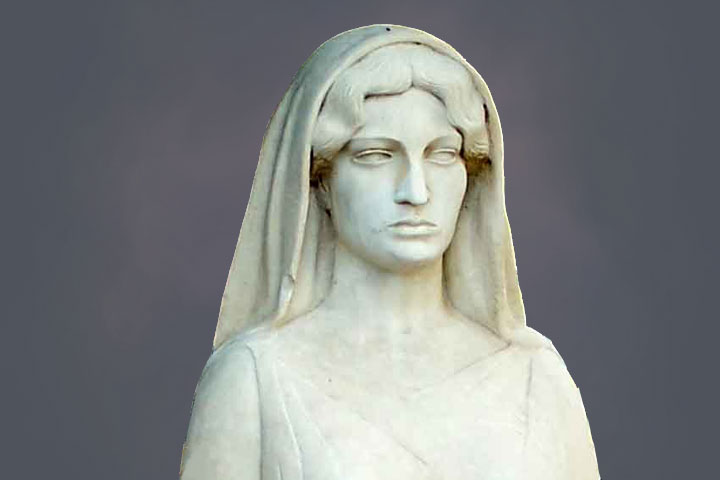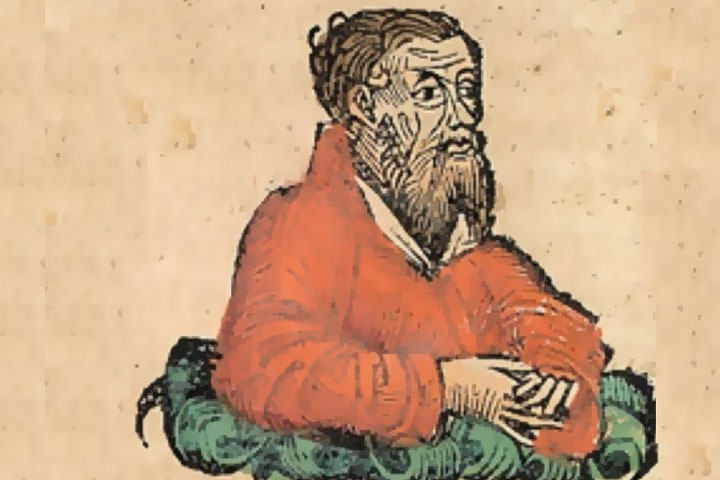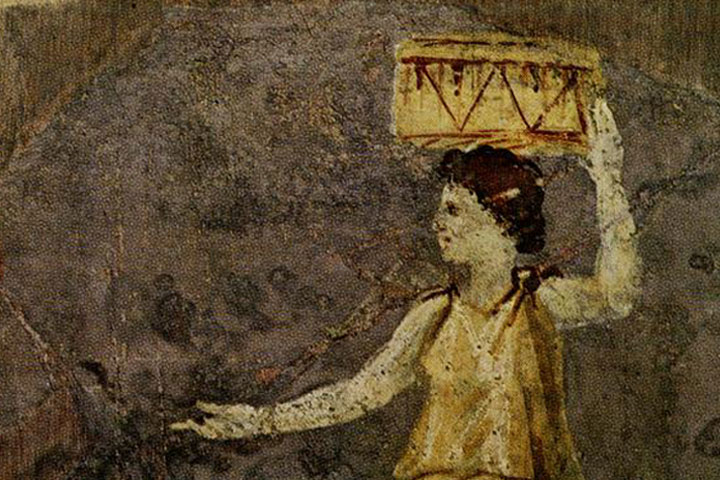Introduction
“The oldest, shortest words - 'yes' and 'no' - are those which require the most thought,” said Pythagoras, the most famous yet controversial ancient Greek thinker, more renowned for his mathematical conundrum- Pythagoras Theorem- and other scientific achievements. Pythagoras words encapsulate the entire gamut of human wisdom because to say yes or no requires the deepest thoughts and a multitude of considerations which in most cases, are required to be taken instantly.
To date, psychologists are unable to unlock the mysteries of the human thought that makes them reply ‘yes’ or ‘no’. For example, saying ‘yes’ to a simple offer to have coffee may sound uncomplicated. Yet, the thoughts causing this simple response are perplexing and influenced by a variety of factors, all processed by the mind in split seconds to deliver an almost instant reply. Indeed, a ‘yes’ or ‘no’ sometimes defines the mental status of a person. These two simple words can mean the difference between death and life for a few.
While this statement by Pythagoras is labyrinthine, so is the author’s life which is equally abstruse due to an intermingling of fact, fiction and myths about his life. Till date, psychologists and scholars are confronted by his legacy, aptly called the ‘Pythagorean Question’ about who was this great thinker and what were his doctrines.

Birth
Pythagoras was born in 570BC on the island of Samos, in the Aegean Sea off modern day Greece. Ancient historians including Herodotus and Isocrates claim, Pythagoras was born in a wealthy family and was the son of Mnesarchus, an affluent trader who imported expensive gemstones and created exquisite jewellery for the rich and famous of ancient Greece. His mother’s name was Pythais.
According to later thinker Aristippus, the name Pythagoras is derived from two sources- his mother Pythais and a legend involving his parents, who went to pay obeisance to the Oracle of Delphi in Samos. The Oracle, or high-priestess named Pythia prophesized to the pregnant Pythais that she would be blessed with a son who will bring unimaginable good repute to the family through his intelligence which would benefit the world. Hence, claims Aristippus, the name Pythagoras was derived from both Pythais- his mother and Pythia- the Oracle.

Life
Renowned Greek historian and chronicler, Diogenes Laertius also wrote extensively about the life and doctrines of Pythagoras in his famous compilation ‘The Lives and Thoughts of Eminent Philosophers’ after seemingly intensive research, albeit conducted much later. Yet, Diogenes Laertius’ work is considered as relatively authoritative since he has painstakingly separated the proverbial chaff of myth and fiction from the grain- or- some indubitable facts about Pythagoras.
Laertius notes, Pythagoras was well educated and urbane, due to his wealthy and sophisticated lineage. Further records about his early education do not exist. Despite, Pythagoras’ works clearly indicate he was interested in cosmology, mathematics and psychology. Some historians claim Pythagoras studied under Anaximander of Miletus, who propounded several geometrical and cosmic theories during the era and was the first to propound that all terrestrial animals, including humans originated from the seas, attempted to explain meteorological phenomenon and draw an intricate theory about cosmology in a non-mythical manner.
This theory gains credence from Pythagorean doctrines which bear the unmistakable mark of the Milesian school of mathematics, cosmology and science, though it cannot be conclusively proved he was a student of Anaximander or his successors and the school.

Quest of knowledge
Eminent ancient historian and chronicler Diogenes Laertius claims, Pythagoras in his quest for knowledge, undertook a long journey that lasted for over a decade. He travelled to various parts of the Athenian empire, Turkey, Libya, Egypt, Mesopotamia and Persia, India and possibly, some part of China. Once again, the ubiquitous Pythagorean Question raises its head here since some historians claim his travels were to study religious rites and mystic traditions while others assert, his journeys were purely aimed at learning more about the human nature, mathematics, cosmology, origins of life and other worldly issues rather than esoteric empyrean pursuit. Yet, some of his teachings are apparently based on Oriental religions- Hinduism and Buddhism- which may have led ancient writers to attribute his journeys to seek supernatural powers.
Returning to native Samos, the now widely travelled and learned Pythagoras formed a school to propound his doctrines which were an exotic blend of mathematics and ascetic lifestyle.

Cult or School
“As long as humans slaughter weaker beings, they will continue to remain in conflict, bereft of inner peace and good health. If they can kill helpless animals, they are capable of destroying one-another,” said Pythagoras. This particular axiom is not found, to date, in any Western spiritual text. Rather, these teachings date back to an era when Buddhism, founded by Gautama Buddha, was gaining ground in ancient India. The dates of Pythagoras visit to ancient India and the proliferation of Buddhism in India coincide.
Pythagorean students maintained a strict code of discipline, which remains unknown to the world to date. This mysterious school thus created a popular perception that Pythagoras had formed some exquisite cult of people who studied sciences unknown to others and lived a strange lifestyle. His quote regarding animal slaughter continues to be debated to date whether Pythagoras indeed propounded vegetarianism and if his students were debarred from consuming meat.
It is now widely accepted however that Pythagoras did not form a cult but a unique school whose teachings were based purely on mathematics and psychology as was known to that era while the institution was run on some spiritual basis that was a blend of then extant Greek mores and Oriental philosophy- a sort of ‘brotherhood’.
Despite, Pythagoras did study human behaviour and formulated independent doctrines that formed the basis of modern psychology. One of his axioms was drawn from the Olympic Games.

The Olympian Example
Pythagoras once visited Athens during the Olympic Games and upon witnessing the different types of people visiting the city-state, drew a conclusion that humans can broadly be divided into three categories, based upon their behaviour. It is debatable whether his classification was based on the ancient Indian caste system but the division bears a striking resemblance to the Oriental tradition of division of labour, albeit in a different perspective.
The three types of individuals described at the Olympics by Pythagoras are:
The Highest- are people who take pains to travel merely to witness the games, cheer the athletes and derive simple pleasure through these activities while taking an opportunity to learn from their experiences.
The Middle- he said consists of athletes and sportsmen who compete in the Olympics for their personal and national honour. Such participants train well and are looked up to by their families and other citizens of their native lands.
The Low- describes Pythagoras, are individuals who converge upon the venue with the sole objective of profiting from the mammoth event by trading their myriad wares to visitors from all over Greece and neighbouring kingdoms. They also utilize the opportunity to buy goods from distant lands that are on offer by traders from those places and sell them in their hometowns for a good profit.
Further, Pythagoras states, every individual possesses these three traits. Any of these characteristics crops up according to the circumstances in which an individual is placed. He does not deride an individual for these traits since they are intrinsically bound with the human nature and the primordial quest for a happy life.

Life after death
Is there life after death? What happens to the soul after an individual dies? These questions remain unanswered to date and in all probability, will never be. Various religious beliefs propound different theories about the afterlife- but none have ever offered a conclusive proof about the ultimate fate of the soul.
Pythagoras, based upon Oriental teachings learnt during his travels, tried to solve this mystery. He propounded, the soul does not perish along with the individual and nor does it undergo imminent peace or turmoil based upon one’s actions. Instead, a soul merely migrates from one body into another. Such transmigration of the soul is not limited to humans since the soul can reappear in any other newborn creature- human or animal.
Coincidentally, this Pythagorean doctrine is strikingly similar to the Hindu philosophy about the soul’s immortality and transmigration. Therefore, it is most likely that Pythagoras developed his thoughts about the soul after studying under some Indian thinkers.
A few ancient Greek writers believe Pythagoras evolved his theory about afterlife based upon ancient lore. But this claim is debatable since most ancient Greek fables concerning the soul were based upon heroes, whose souls were claimed to have migrated to some paradise.
Pythagoras was merely trying to explain the simple concept that everything in this universe is intrinsically bound and hence all things recycle themselves. But his doctrine about rebirth, the brotherhood of mathematicians in his school with strange rules and his overall knowledge about a wide range of topics made Pythagoras a cult figure of sorts, with commoners and rulers attributing him with supernatural powers.

The Cult Figure
With Pythagoras being considered as a divinely anointed cult figure, his fame in native Samos and neighbouring areas spread like wildfire: Inadvertently, he found himself becoming a consultant for a myriad of issues ranging from counselling in marital discords to advising rulers on governance, helping students understand complex studies and attempting to cure the sick through celestial intervention.
But this popularity had its flip-side: Those envious of his fame and reverence soon began defaming Pythagoras as a charlatan and plotted to charge him with impiety for invoking powers from alien deities. Thankfully for Pythagoras, his clique included the rich and famous and followers included the sick and poor. Hence, plotters were wary of levelling charges against him fearing they may boomerang.
Overwhelmed by incessant demands he could least handle, Pythagoras and some pupils agreed to flee Samos into a self-imposed exile. They also wished to establish more schools that would study mathematics and psychology to further Pythagorean doctrines and hence, embarked on a journey that took them to various parts of ancient Greece.

Rise of the Pythagorean brotherhood
As Pythagoras and his students travelled and propagated their theories and serene, austere lifestyle, they found several supporters and enthusiasts. Small and large Pythagorean brotherhoods mushroomed in various towns and cities in Greece.
Their journey also took them to Crotona, now in Italy, which was renowned for its citizens who loved learning. Here, Pythagoras’ life was to take an abrupt yet pleasant twist that would shape his future forever and give a newer direction to his esoteric school.
This happy incident occurred at the home of a local, highly respected, wealthy physician and aristocrat, Brontinus of Crotona. Being fond of Orphic mysticism, which deals with the mythical Greek demigod Orpheus, Brontinus would often host debates between local thinkers, aristocrats and foreign scholars transiting Crotona.
Brontinus’ daughter, Theano, was also fond of these debates and would often listen to them silently and occasionally, accompany her father to some of these events hosted by other nobles at their palatial homes or for the proletariat, in public places. She had heard of Pythagoras and was eager to see and hear the great thinker and mathematician due to myths associated with this man from Samos.

Meeting with Theano of Crotona and marriage
During the debate hosted by Brontinus, a silent spectator was overawed by Pythagoras- Theano of Crotona. She chose to become his disciple and was willingly accepted by Pythagoras as a pupil. Indeed, Brontinus and other aficionados of Pythagorean teachings helped the great mathematician and psychologist to establish his famous school in Crotona. Pythagoras and Theano soon became lovers and eventually married. The couple had three daughters, Damo, Myia and Arignote and two sons, Mnesarchus- named after Pythagoras’ father and Teleuges.
The Pythagorean school in Crotona remained popular for several years. However, its teachings, especially those related to cosmology- or the origins of cosmos and its inherent bearings on human life, divine beings and other controversial teachings- led to a popular revolt against its followers all over ancient Greece, around 500BC.

Reasons for the uprising
Pythagoras prescribed strict rules for his students or the brotherhood. Those who violated any of these norms would be expelled from the school disgracefully. Hence, Pythagoras was rather strict in selecting students who could join the brotherhood. Pythagoras was hence accused of forming a cult that digressed from ancient Grecian religion and traditions. Further, people who could not join the school due to its strict admission policies bore resentment against Pythagoras, his brotherhood or school and its disciples.
Among the edicts of the Pythagorean school or brotherhood was one famous edict where students were strictly prohibited from consuming all types of beans, especially the Foul or Fava beans- consumed widely in Mediterranean countries since ages. Pythagoras claimed, eating beans causes severe discomfort in the alimentary canal and causes digestive tract disturbances- which he likened to upheavals in the cosmos.
Unverifiable records claim, he likened bean consumption to cannibalism- which pollutes the body and impedes with the purity of the human soul. Hence, candidates who were capable of living well despite the rigorous regimen were admitted by Pythagoras to his brotherhood. Without realizing the extent of resentments he had caused, Pythagoras continued to enforce his strict rules regardless of the social standing of a student.

The flashpoint
While in Croton, the great mathematician and psychologist was approached by Kylon, the son of a local aristocrat, who wanted to study under Pythagoras. Kylon, despite his wealth and noble lineage, had a bad reputation for indulging in unabashed violence against anyone who would not cede his demands.
Kylon reportedly approached Pythagoras and sought admission to the brotherhood. The teacher, knowing that Kylon would never assimilate into the school and its teachings, refused admission. Angered at this denial, Kylon vowed revenge and gathered a bunch of local ruffians who ransacked the Pythagorean school in Croton, setting it ablaze.
Pythagoras and his family were rescued by his students and sheltered in neighbouring forests. The group, along with their master, later embarked on a journey to Pythagoras’ native Samos. However, ill health forced Pythagoras to seek shelter in Metapontum.
However this incident marked the end of the widespread Pythagorean brotherhood. By 500BC, every Pythagorean school in ancient Greece was attacked and destroyed for reasons ranging from impiety to violation of local rules.

Introduction
The rampage at Crotona and wanton violence against the Pythagorean brotherhood left the teacher in great distress. He isolated himself, spending time with wife Theano and a few select students. Despite his own achievements in mathematics, cosmology and psychology, Pythagoras did not write any treatise, perhaps fearing he would be persecuted for it. He died a dejected man five years later, in 495BC in Metapontum. A monument commemorating the great master was built in Metapontum by his ardent followers.
One would have expected the Pythagorean brotherhood to become extinct after the death of its founder and the systematic destruction of its schools. However, history proved otherwise.

The Legacy
Theano, the wife of Pythagoras painstakingly penned her husband’s studies, discourses and doctrines. His disciples spread the Pythagorean doctrines across Greece and other parts of the world. The popularity of his teachings reached zenith when most later thinkers began working on further developing the doctrines preached by Pythagoras.
Further, Pythagoras is also reputed for several quotes, though their sources are debatable considering the great master never wrote anything. Some of these quotes are:
“Strength of mind rests in sobriety; for this keeps your reason unclouded by passion”.
“As soon as laws are necessary for men, they are no longer fit for freedom.”
“There is nothing so easy but that it becomes difficult when you do it reluctantly.”
But the most popular legacy of Pythagoras is the geometrical apothegm that bears his name ‘Pythagoras Theorem’.
Next Biography
















